Children’s positive views of themselves as learners are more important than being told they are clever.
This insight from Nathan Wallis’s talk at the Australian Childcare Alliance (ACA) conference resonated with us, and we believe it’s valuable for parents to hear. Our intention isn’t to make parents feel guilty for praising their children’s intelligence. We understand that parents aim to foster a strong sense of self and ability in their children, and we fully support this. However, Wallis emphasises that before the age of seven, children don’t need to prove their intelligence. Instead, they need to develop learning skills through play and believe in their ability to learn. According to Wallis, more play and less structured learning before age seven leads to better outcomes in adulthood.
“To put it simply, before seven, it doesn’t matter how clever your child is. What matters is how clever your child feels and their disposition towards themselves as learners,” Wallis, an educator who focuses on neuroscience, explained on the Future Focus podcast.
“You’re better off having a six-year-old who can only count to 20 but thinks they’re a good learner than a six-year-old who can count to 100 but doubts their cleverness.”
Wallis highlights that free play boosts creativity and problem-solving, which are essential for intelligence. Letting children freely build, create, and explore supports flexible thinking and a positive learning mindset.
At the conference, which attracted hundreds of early childhood educators, Wallis offered advice on how to support children in their confidence and ability to learn:
Experts at Early Childhood Australia agree that children learn about themselves, others, and the world around them through play.
“If you provide your child with plenty of opportunities for playing, exploring, discovering their interests, solving problems, and tackling challenges, then you’ll be laying a strong foundation for building self-confidence,” says David Lyons, CEO of Nido Early School, in a post on ECA’s The Spoke blog.
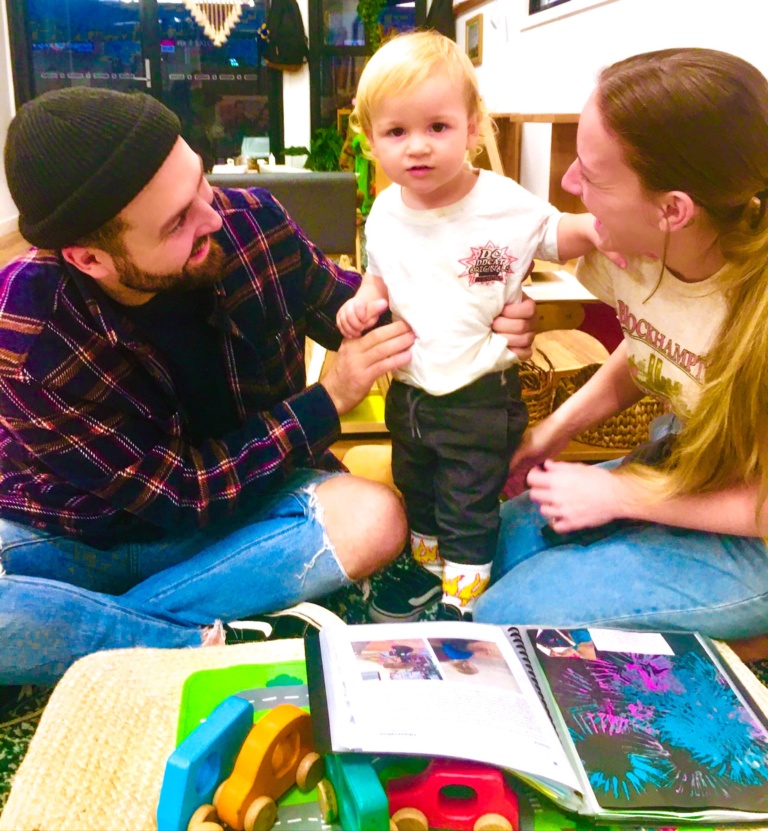
According to Be You, the national mental health and wellbeing initiative for learning communities in Australia, praise is most effective when adults are mindful of how and when they use it.
When praising children, Be You suggests focusing on their efforts and achievements.
“Praise that’s specific and acknowledges the process of completing an activity or solving a problem helps develop children’s learning and motivation. For example, you might say, ‘You put away your toys so nicely,’ ‘I noticed you were really trying hard at building that block tower,’ or ‘You’ve used so many bright colours in your painting.’ Children can then use this learning when they have similar experiences in the future.”
Lyons agrees and cautions against overpraising.
“Children need to discover and learn those things that give them personal enjoyment and fulfilment, not just do things to please their parents. Similarly, comparing a child to others can be detrimental to their confidence and self-esteem.”
Dealing with disappointment is also crucial for developing confidence.
“Everyone fails to achieve their goals sometimes – and this isn’t a bad thing. You can build children’s ability to deal with challenges by responding sympathetically and with encouragement, helping children focus on what they can change, and challenging ‘I can’t’ thinking by showing and saying you believe in them and reminding them of their achievements,” says Be You.
Wallis reinforces that play enables children to develop social, cognitive, and emotional skills through their own interests and in creative and innovative ways.
“Play-based learning teaches creativity, which is fundamental to growing intelligence and the ability to problem-solve. When children can take their time and make multiple attempts before achieving success, they build resilience and other important skills needed later in life,” says Wallis.
Supporting children in developing a positive self-view as learners is crucial, especially in their early years. Emphasising the importance of play over structured learning fosters creativity, problem-solving, and resilience. By providing nurturing relationships, paying attention to their efforts, and creating flexible learning environments, we can help children build the confidence they need to thrive.
As Nathan Wallis and other experts highlight, the goal is to make children feel capable and enthusiastic about learning. This foundation will benefit them not only in school but throughout their lives. At Little Scholars, we encourage our little ones to play, explore, and believe in themselves – because how they see themselves as learners today will shape their success tomorrow.
Over the past couple of months, we have started to launch woodworking stations at our campuses! But why, you may ask. It’s dangerous! They could get hurt! At Little Scholars, we actively guide children through ‘risky’ activities to build up their skills, confidence, and resilience. Engaging in woodworking helps children learn to assess and manage risks, develop fine motor skills, and boost their creativity and problem-solving abilities. By introducing these activities in a controlled and supervised environment, we ensure they gain valuable life skills while staying safe.
Woodworking is an excellent way for children to exercise their creative, practical and critical thinking skills. It allows them to express their ideas and figure out solutions to their projects.
As they measure, cut, and assemble pieces of wood, they enhance their hand-eye coordination and fine motor skills. These activities require precision and control, which are crucial for writing, drawing, and other tasks. Furthermore, using tools like hammers, saws, and sandpaper teaches them how to handle and manipulate objects with care and accuracy.
Guiding children through woodworking activities helps build their confidence and resilience. Completing a woodworking project, no matter how simple, gives children a sense of accomplishment and boosts their self-esteem. They learn that they can create something tangible and useful with their own hands. Additionally, the process often involves overcoming challenges and solving problems, which teaches persistence and resilience. These qualities are essential for tackling academic challenges and life’s obstacles.

Our little scholars begin their woodworking projects by making a plan. This may look like drawing out their project, or making a model out of cardboard or building blocks, discussing with their friends and educators what they’d like to build, how they’d like it to look, what tools they need in order to make their design come to life, and figure out any risks there may be and how to reduce chances of hurting themselves.
Introducing woodworking in a controlled environment allows children to learn about risk management. They are taught how to use tools safely, understand the potential dangers, and take appropriate precautions. This hands-on experience with ‘risky’ activities helps them develop a healthy respect for safety and risk assessment. They learn to think ahead, plan their actions, and make informed decisions to minimise risks, which are valuable skills both in and out of the workshop.
Some of their documented conversations with educators have included:
How can we make sure we are safe when using the tool table?
“You have to wear safety glasses.”
“If you step on a nail you can hurt your feet.”
“It can’t be too busy, I might knock something over or into someone and hurt them.”
What do you do at the tool table?
“I can measure the wood.”
“When I’m at the table I use the screwdriver.”
“I use nails to put in the wood.”
How does it make you feel when you build at the tool table?
“I like tools because I can screw something in.”
“I feel happy because I can make something.”

Woodworking supports creativity and problem-solving skills. As children design and build their projects, they must think creatively to overcome design challenges and find solutions. This process encourages them to experiment, explore new ideas, and think outside the box. The ability to approach problems creatively and develop innovative solutions is a real skill in today’s world, where adaptability and innovation are highly valued.
In addition to the practical skills, woodworking integrates educational concepts such as maths and science. Measuring pieces of wood, calculating dimensions, and understanding geometric shapes are all part of the woodworking process. Children also learn about the properties of different materials and the principles of mechanics and engineering. This hands-on application of academic subjects helps to reinforce their learning and makes these concepts more tangible and understandable.
By providing children with the opportunity to engage in woodworking, we are equipping them with a wide range of skills and experiences that will benefit them throughout their lives. Through careful supervision and guidance, we ensure that they can enjoy the benefits of this fun activity safely.
Early childhood education has far-reaching benefits, not just for children, but for society as a whole. By investing in the early years, we create a foundation that supports the well-being of families, strengthens communities, and drives economic growth.
Here’s why:
It creates a happier and healthier workforce. Early education supports parents, reducing absenteeism and turnover by improving overall wellbeing and mental health. This leads to a more stable and productive workforce.
It establishes a future-ready workforce. Children who receive early education develop crucial social and emotional skills, preparing them to handle future complexities and challenges.
There are huge economic benefits. Early childhood education contributes significantly to the economy. It generates $313M in immediate tax revenue and an additional $495M in future tax revenue. This is because parents of children in early education can work more, and these children grow up to earn higher qualifications and wages.
It actually has the potential to reduce public spending. How? There’s a $1,194M reduction in health, welfare, and crime costs. Early education leads to lower rates of obesity and smoking, more people entering the workforce, and fewer involved in the justice system.
It can increase household Incomes. While costs are incurred in childcare fees, overall families benefit significantly, with household incomes increasing by $1,463M. Many parents can work more hours or re-enter the workforce thanks to early childhood education.
It enhances lifetime earnings. Early education boosts lifetime earnings by $997M due to higher academic achievement and qualifications.
It leads to healthier lives! Each year, 8,500 children are less likely to face obesity-related health issues, 2,300 are less likely to become smokers, and 763 are less likely to be incarcerated as adults.
It improves productivity. There’s a $319M increase in productivity from a more educated workforce. Additionally, 4,000 fewer children drop out of school each year because early education provides them with the foundational skills they need to succeed, and often leads to a lifetime love of learning.
These benefits underscore the critical importance of early childhood education for everyone. Investing in our youngest learners is an investment in our future.
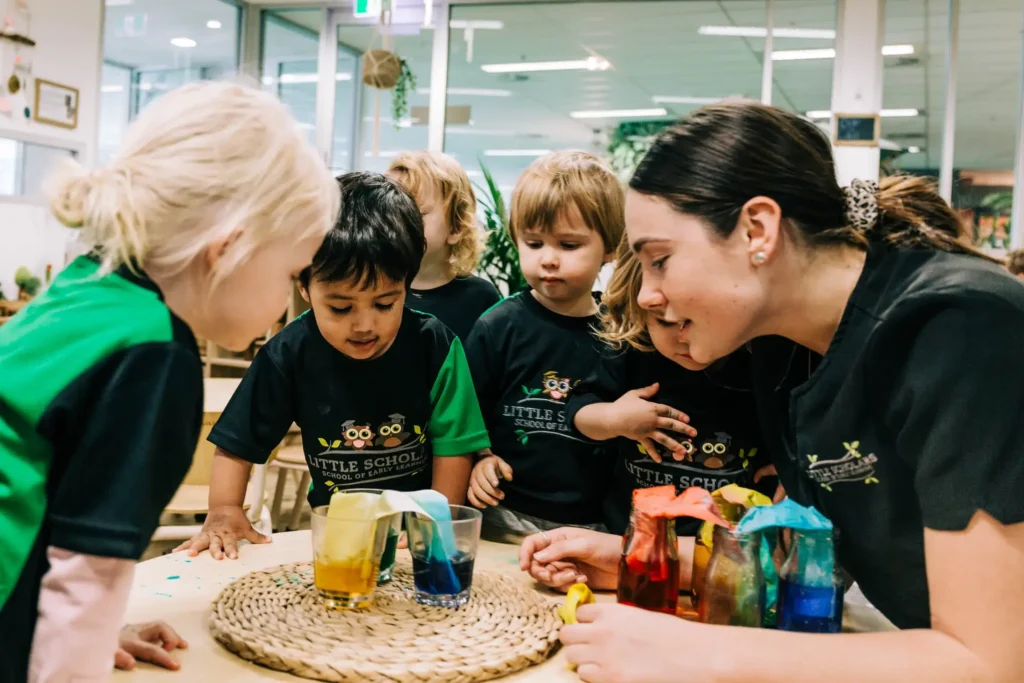
At Little Scholars, we are committed to supporting not just the incredible children we have the privilege of educating, but their families.
Through initiatives like our Family Time program, which includes haircuts, quarterly date nights, take-home meals for the children and parents. We also arrange specialist appointments on-site which include optometrist, podiatrist, speech pathologist visits, dentist, and child health nurse appointments.
We believe that by nurturing these relationships and providing high-quality early education, we can help create a brighter future for all.
Book a tour today to see firsthand how Little Scholars can support your family. Visit www.mylittlescholars.com.au to learn more.
Families who live in South East Queensland, a truly beautiful part of the world, are fortunate to enjoy pleasant weather most of the time. But, like anywhere, we get our (small) share of rainy or cooler days. And while one or two days of weather-related downtime can be welcome, our corner of the Earth can sometimes see days on end of rain, something we’re not quite used to, which mean our little ones may be bouncing off the walls if we don’t find some weather-appropriate things to do for them.
Since Little Scholars is in the business of small humans, we’ve gathered some activity ideas for parents we know children will love in any weather!
With its plethora of beaches and hiking trails, most people associate the Gold Coast with sunshine and heat, a near-perfect holiday destination, but what can families do if it’s cool, cloudy or raining? The answer is, there’s still plenty to do!
We’ve selected some of the most fun, unique indoor activities families with young children can do on the Gold Coast, the Redlands and in the state capitol, Brisbane.
This creative hub offers plenty of rainy day entertainment options. Wander through five levels of thought provoking and inspiring displays, exhibits and artworks at the incredible HOTA Gallery. There’s a Children’s Gallery on Level 1 where little ones can do craft activities and interact with creative displays.
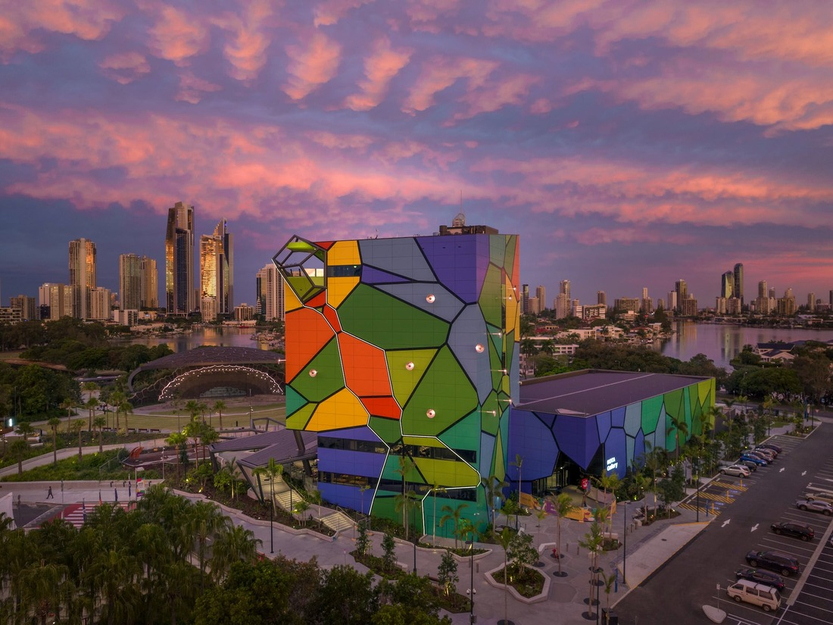
The Gold Coast Motor Museum in Upper Coomera is a fantastic option for rainy days, featuring over 80 cars and memorabilia. Opened in October 2020 by brothers Carl and Grant Amor, the museum is a tribute to their parents’ love for cars. Located in the scenic Gold Coast hinterland, adjacent to Stanley’s Barn Restaurant & Bar, it’s a perfect destination for family fun and nostalgia.
Only closed Mondays and Tuesdays, children under 13 enter for free, and they’ll love exploring the eclectic range of vehicles spanning the years 1900 to 1988.
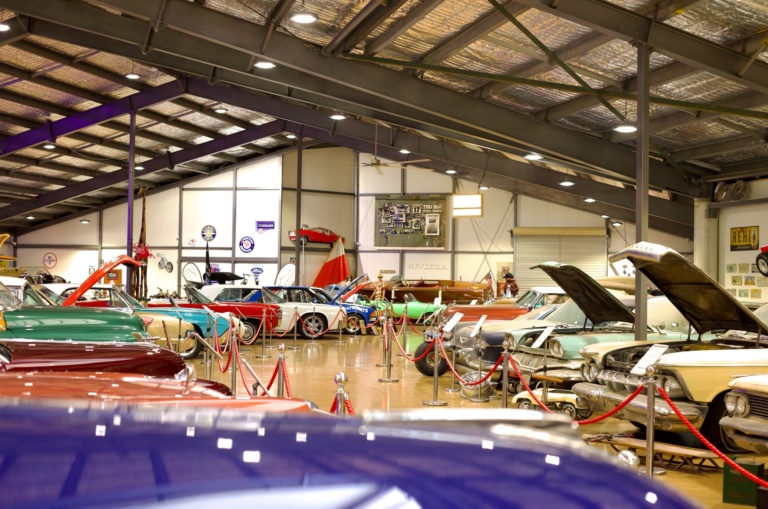
Looking to entertain your children and use up some of that endless energy? EMF Junior caters for children ages two to 13, with massive ball bits, slides, tunnels, climbing apparatuses, giant blocks and more. There is a separate zoned toddler area that caters to their specific abilities and needs.
Parents can also book their children in for the creche at Nerang and supervised drop and shop sessions at Pacific Fair, which comes in particularly handy for parents who need a bit of time to themselves!
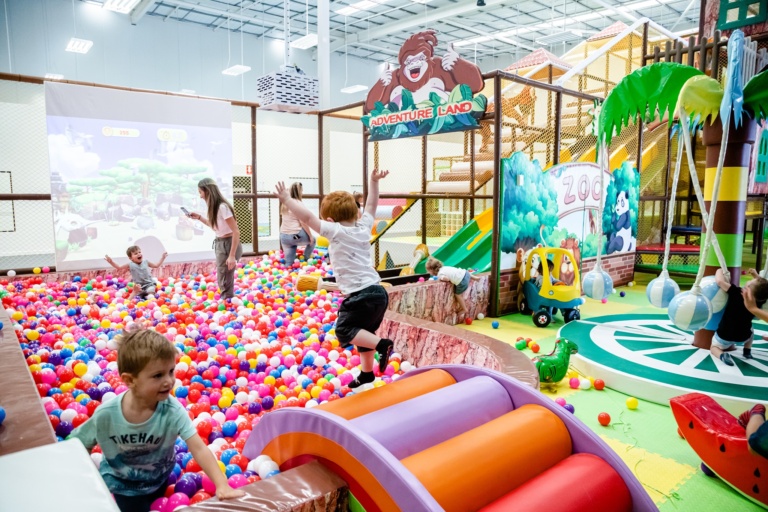
A classic rainy day activity! But the 13 locations of Gold Coast City Libraries are not your grandmother’s library! They offer a ton of benefits besides an incredible array of books!
Join your library for fun times as the friendly librarians help build pre-literacy, communication, language and social skills for your babies, toddlers and preschoolers.
Baby Rhyme Time – Giggle, coo and cuddle with favourite rhymes and songs. Ideal for children from birth to two years.
Toddler Time – Sing, move and groove, learn new words and make new friends. Ideal for toddlers aged two to four years.
Storytime – Listen, laugh and roar with favourite stories old and new. Ideal for children from three to five years.
These are offered seven days a week across all locations. For your closest library’s schedule, or to find nearest availability for these programs when they suit your schedule, click this link.
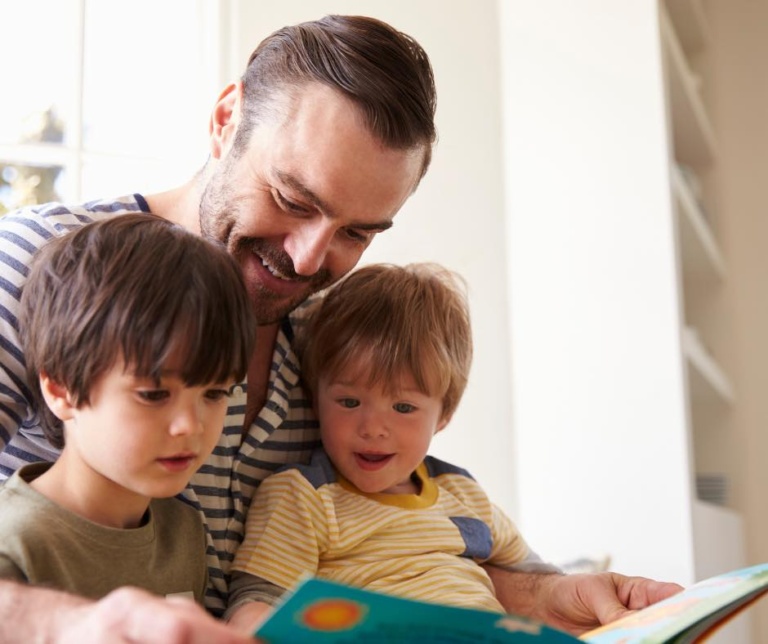
Grab the family and head over to Paradise Resort Gold Coast for an experience rare to the southern hemisphere – ice skating!
Planet Chill is suitable for anyone over three years, and to make it a little easier for beginners to stay on their feet, Planet Chill has fibreglass penguins to help make your ‘icecapades’ more bump-free.
Your family will be gliding to popular music, a disco ball and under-ice lighting to light up your session.
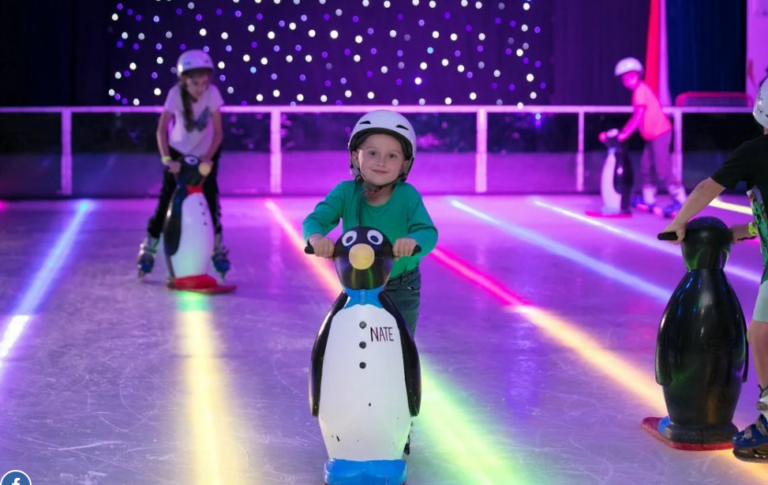
IMAGINATOR is a multisensory, walk-through experience that houses a series of immersive art installations that celebrate imagination, technology and play.
There are 15 immersive, one-of-a-kind experiences under one roof that have been created by a talented team of architects, audio-visual artists, futurists, renderers and sound designers. The rooms feature multi-sensory installations like AI projections, sensor-triggered LED waves, giant silk parachute canopies, cosmic gardens, an anti-gravity sunset, an electronic hall of mirrors, a digital wishing well and a whole heap more.
Suitable for all ages, and is generally safe for people with sensory sensitivities, epilepsy or neurodiverse persons.

Marvel at hundreds of rare and unusual artifacts and get hands-on with unbelievable interactives at Ripley’s Believe It or Not! Surfers Paradise. Play your way through! Shatter your senses in the Vortex Tunnel, where illusions and a colourful light show transport visitors into a mind-bending dimension, or let curiosity be your guide in the Funplex, filled with hands-on interactives.
Families can add on fun by purchasing an experience at the Ripley’s Mirror Maze Surfers Paradise
Charming Redland Bay has a real country feel despite being a growing bayside residential community. For its residents, the conservation areas and places for sport lead the activities, but that doesn’t mean rainy days mean families need to stay home.
The IndigiScapes Centre is Redland City Council’s environment education centre. Situated on 14.5 hectares of serene natural bushland, IndigiScapes offers native botanical gardens, a native nursery, bush trails, a nature playground. But while a lot of its appeal is focused on the outdoors, it does have an indoor environment that visitors can access in less desirable weather.
The Discovery Centre is full of information, displays and hands-on learning opportunities for visitors of all ages! With interactive environmental education areas, microscopes, lookout window, and touch screen activities, everyone will love learning more about the natural world.
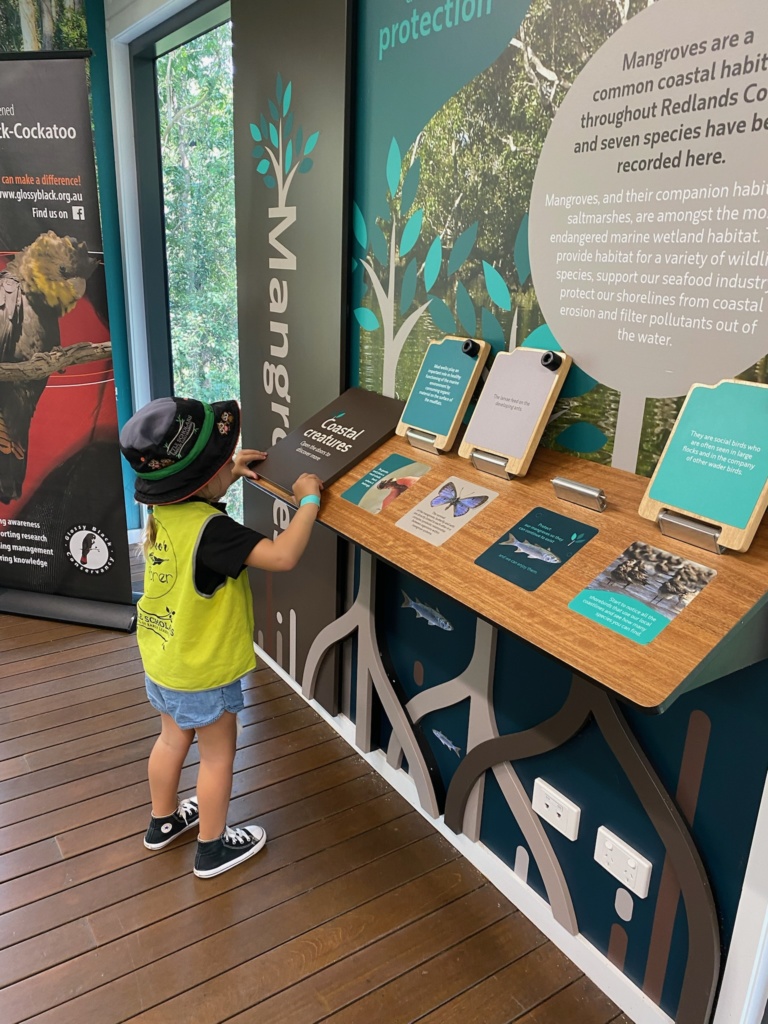
After exploring the Discovery Centre, you may have worked up a hearty appetite, so check out the IndigiCafe and enjoy local cuisine with a bushtucker twist while overlooking beautiful Coolnwynpin Creek tributary on Redlands Coast. You’ll love the food so much, you’ll want to take some of the bush flavours and spices home with you.
Check out the Redland Museum! Step inside the Museum and discover a treasure trove of historic artefacts and fascinating stories about the people, places and events that helped to shape the Redlands Coast.
The museum even has a toy hall of fame, where children can see unusual toys from the past, play with the interactive model railway, wind the handle and make calls on 100 year old telephones and see a collection of 100 dolls in handmade costumes.
They can also climb aboard and ‘drive’ the Redlander railmotor and even see how children learned at school in the past.
Open seven days a week from 10am to 3.30pm, the museum is great for families. Admission prices are $10 adults, $6 concession, children are FREE.
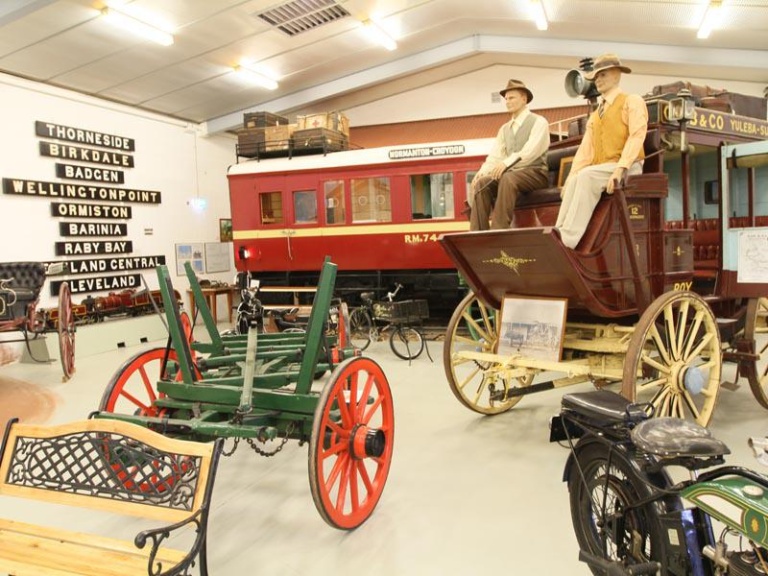
This award-winning gallery offers ‘Family Sundays at the Gallery’ once per month at RAG, Cleveland. These sessions offer families a chance to create together exploring a variety of techniques themed to compliment the gallery’s latest exhibitions. It is a great chance to connect with each other while enjoying some hands on creative fun. The gallery also offers a Parents and Prams session one Wednesday a month as an opportunity to explore the latest exhibitions, socialise and get arty.
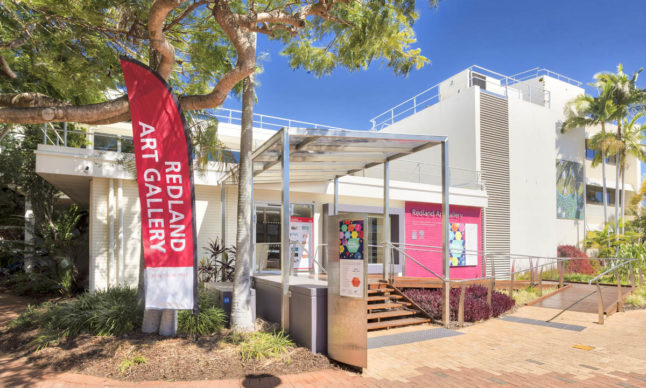
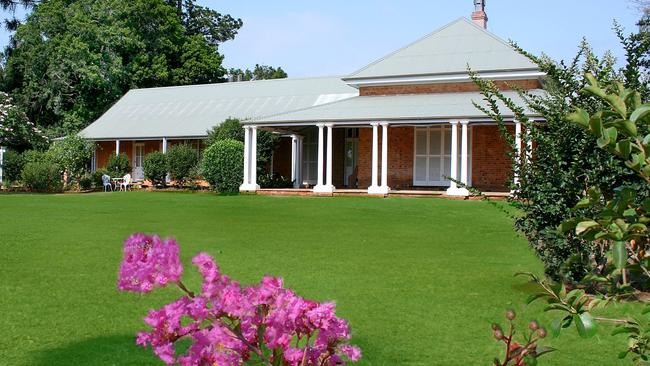
Called a ‘hidden gem’ on Tripadvisor, we’re bringing this charming museum out of hiding to share with our families. The museum represents the 65,000 years or so of Aboriginal history, the British invasion and colonisation and a complex shared history of less than 200 years.
If your little artist wants to try something new, why not visit Colour My Pot, a pottery painting and clay studio that provides a fun and creative environment where people of all ages can come together and make memories and some beautiful art.
Colour My Pot also caters to children for birthday parties and school holiday activities.
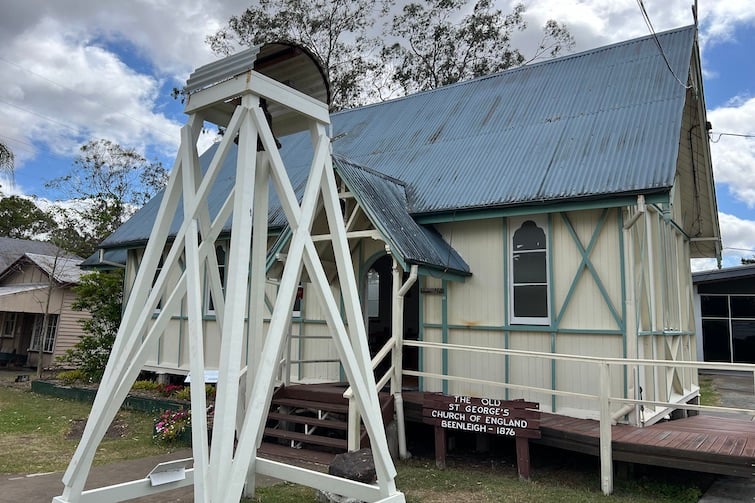
If families are looking for something completely different to do, or have a locomotive-obsessed little ones, check out the Queensland Pioneer Steam Railway in Ipswich!
Experience a ride on vintage steam trains from the early 1900s and learn about Queensland’s railway history as you travel along historic tracks. Enjoy beautiful countryside views and grab a bite to eat or drink onboard. Check their website for dates and times.
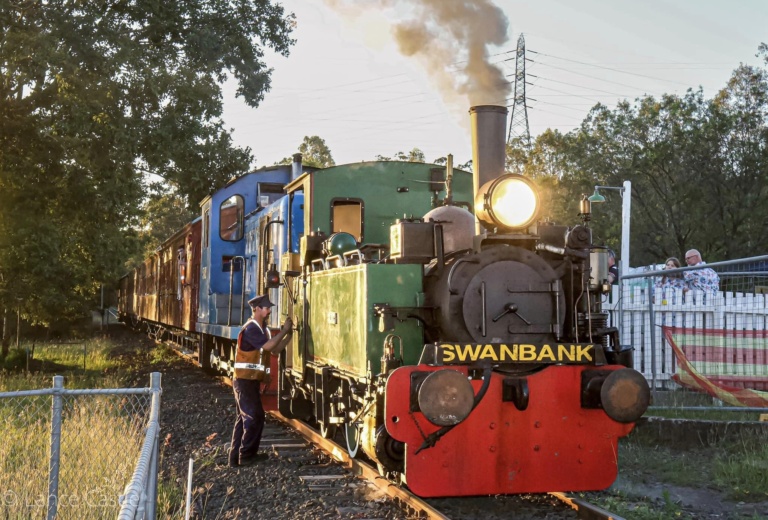
Queens Park Environmental Education Centre offers locals, visitors (and especially families) the chance to learn more about Ipswich’s unique natural environment, waterways, and sustainability themes at no cost. Located in the heart of the city’s beloved Queens Park, children can get hands-on with this delightful, interactive, playful learning environment.
The Centre has many environmental education exhibits that showcase Ipswich’s unique natural environment, waterways, and sustainability themes. The interactive displays connect visitors with nature in the home and around the city. Families will love visiting the giant fig ‘growing’ inside the centre and explore the variety of ecosystems and wonderful wildlife that can be found in the Ipswich area.
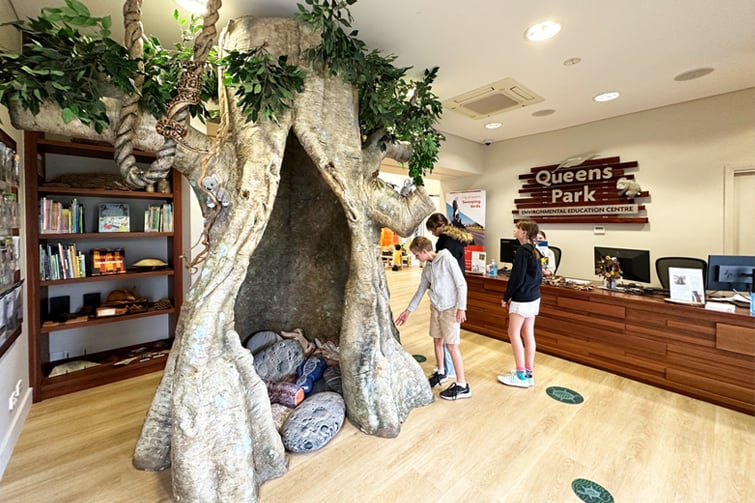
Did you know Ipswich has Australia’s only public library dedicated to children? It features a specially designed catalogue with over 35,000 books just for children, and unique multi-reality interactive experiences.
The Ipswich Children’s Library is designed to be an interactive and engaging space for children. It features various zones with elements that encourage exploration and active participation. Highlights include a series of colourful tubes where children can send fabric pieces flying through the air, large interactive screens, and colouring tables where children can scan and watch their decorated fish swim on a screen. The library also offers cosy reading nooks, a gaming touch screen with STEAM-based puzzles, and a unique Reading Tree with a cushioned tunnel for reading. The space is filled with natural light, thanks to its floor-to-ceiling windows overlooking the Nicholas Street Precinct and landscaped gardens.
The library is open seven days a week and hosts regular, child-focussed programs and events and special tech adventures just for little ones!
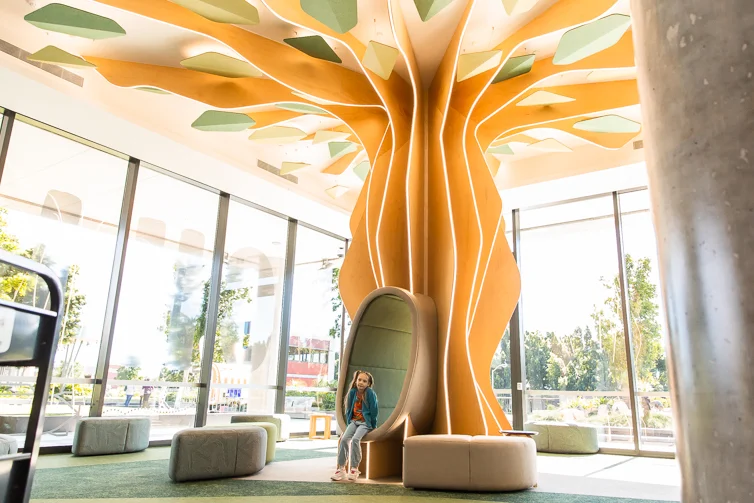
Head over to Carindale to exert some of your little ones’ boundless energy where you’ll find this active adventure-play centre specially designed for pre-school children, offering fun, active-play experiences that help develop a positive relationship with physical activity.
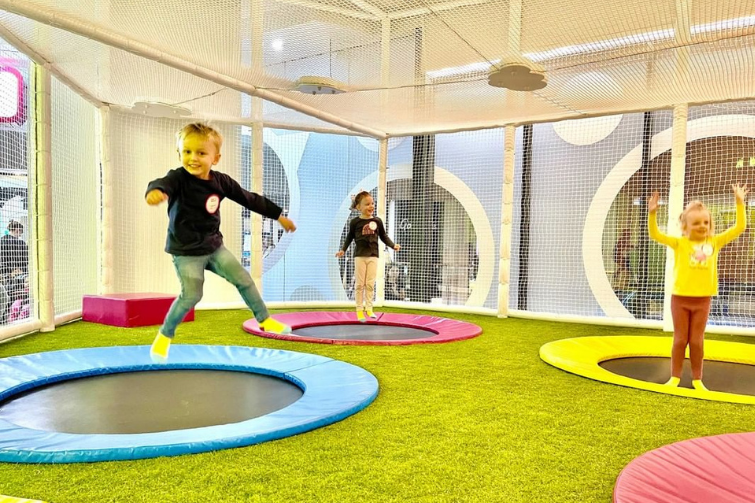
Hologram Zoo is a family-friendly entertainment centre that operates like a traditional zoo, but with a twist – all the animals are holographic projections created using laser light technology. Suitable for children aged three and above, there are different country based shows like Africa, North Pole, Asia, and Australia. The zoo even allows guests to travel back in time and visit the dinosaurs.
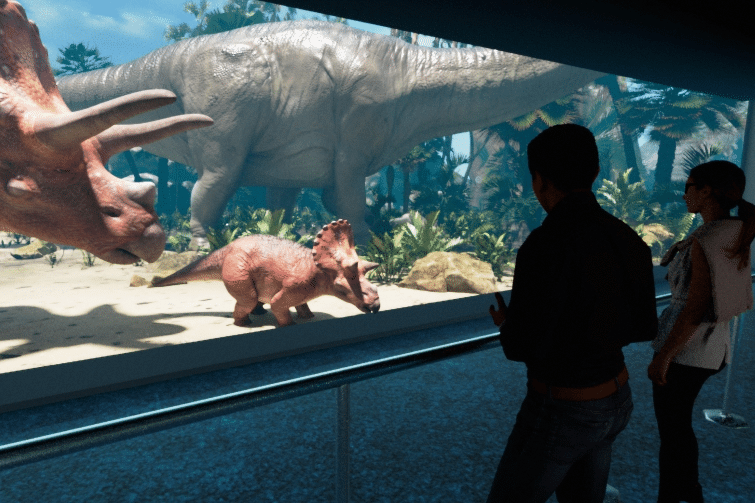
Area 51 Brisbane is Australia’s largest indoor playground, occupying an incredible total space of 10,000 square metres of endless fun for all ages.
For babies to small toddlers there’s Astrotots Wonderland and Cosmo’s Inflatable Wonderland. For children aged three to four, they can explore Mini Rovers, which includes Trampoline Park, Cosmo’s Inflatable Wonderland and Gizmo’s Galaxy. Children ages five and up can explore Universe, which includes High Ropes, Bouldering, Trampoline Park, Gizmo’s Galaxy, Mega Slides, Parkour X or Ninja Park.
Adults are very welcome to supervise for free or play for the price of a ticket.
Area 51 also has four different eateries, including iDumplings, Night Market, Mollis and the Area 51 Cafe.
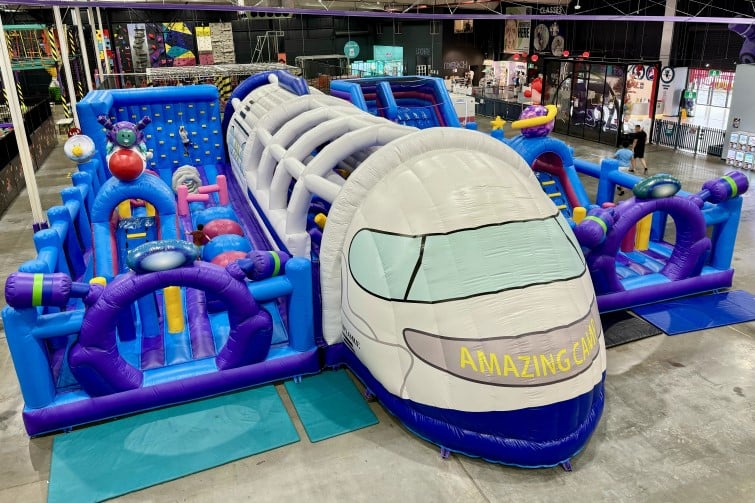
At Little Scholars, with locations across South East Queensland, we understand that rainy days are opportunities for unique and engaging learning experiences. Our early learning service is dedicated to providing the highest quality early education and care, making every day, rainy or sunny, a chance for exploration, learning and fun.
Our beautiful campuses, best of the best resources and sector-leading curriculum, including play-based programs underpinned by the Early Years Learning Framework, ensure that your child won’t miss a beat in their development, even when it’s pouring outside.
Our team of dedicated educators tailors activities to the individual needs and interests of each child, making every day an adventure in learning. We cherish the deep, nurturing relationships our educators build with each child and celebrate the friendships they form with their peers.
Why not see for yourself how we transform rainy days into super fun learning experiences? Book a tour today and join our Little Scholars family!
While it feels increasingly common, when the news cycle often brings unsettling stories into our homes, it can be tough for parents to find the right approach to discuss such events with their young ones, or even know if they should. Here we share some thoughtful strategies to help you navigate these challenging conversations, ensuring you, and your little ones, feel secure and supported.
How to navigate this news with the family can depend heavily on the age and maturity of the members.
During a time in which the news may make us feel defeated and deflated, or fearful and stressed, we hope we can support parents in addressing global events sensitively and thoughtfully, especially important given that young children are always looking and listening.
Young children’s exposure to news should be limited, according to experts. This can be done by turning off the TV during news broadcasts and restricting children’s access to your social media channels to shield them from disturbing images. It’s also advisable to limit discussions about frightening events around young children, saving such conversations for after they’ve gone to bed. While some exposures may be unavoidable, these steps help protect your little ones from unnecessary distress.
For small children, they may not be able to verbalise their feelings, so in times of stress, or if you think your child may know what’s going on in the news, be attuned to any changes in mood or behaviour. These changes in your child could include:
Start by gauging what your little ones already know about a current event. For school-age children, inquire about their knowledge from school or social media. It’s important to consider the developmental stage of your child, as younger ones may struggle to distinguish fact from fantasy, typically gaining this ability around the ages of seven or eight years.
If your child shows disinterest or reluctance to discuss the event, respect their feelings and try avoid repeatedly pressing them further, but remind them you’re always there to listen or even just when they need to cuddle.
Be present for your child and prepared for questions. When addressing questions from children, it’s important to be honest yet selective about the details you share. Aim to alleviate fears and provide reassurance to your little ones because you’re their safe place. Listen attentively to their concerns, especially after distressing news events. Address any fears about personal safety by being present during this time and don’t dismiss your children’s fears and concerns.
It’s perfectly acceptable to admit if you don’t know an answer; take it as an opportunity to explore the answer together using age-appropriate resources.
Meanwhile, keep monitoring what your child is watching and limit repeated exposure to potentially distressing news, as the repeated exposure during these 24-hour news cycles can drive a child to dwell on what they’ve seen and heard.
Some adults may remember American children’s TV star from the 1970s and 80s Fred Rogers, who once shared advice that still could be applied today. He said, “When I was a boy and I would see scary things in the news, my mother would say to me, ‘look for the helpers. You will always find people who are helping.’” If children hear about a car accident, talk about the brave bystanders and paramedics who quickly arrive on the scene. If they hear about war abroad, you could about all the ways people come together to help those in need – providing aid, opening their homes, and raising money. This could and should segue into a conversation about how as a family you could help people who’ve experienced adversity or traumatic situations, like a house fire or homelessness.
Appropriate age-language is important here, because young brains just aren’t developed enough to understand some of the harsh realities of the human experience. Even something simple like using the verb ‘hurt’ rather than killed, murdered, stabbed, etc all of which are verbs that could scar young children.
Sarah Bergman, a psychotherapist with Counselling on the Coast, says parents should also be aware of their own conversations, actions and moods, because children can be very attuned to their parents. She agrees that if parents are noticing changes in their children, they should provide a little extra care and attention, but says they should mindful of giving over-the-top anxious attention as this can further little ones’ worries.
“It may just be that parents provide more presence to their little ones at this time, allowing opportunities for anything that needs to emerge and it may just be a little bit longer snuggle at bedtime, where they integrate a felt sense of warmth and safety, that all is ok in their little worlds with mum and dad as their protector,” Sarah suggests.
Finally, if you’re concerned about your child, this is a conversation to have with early childhood educators and your Little Scholars campus manager. We’re on your family’s team, so please tell them about any behavioural changes you’ve noticed, what you’ve done at home and what your wishes are for while they’re in childcare.
Our educators have been trained in trauma response and can even offer insight into your child or suggestions on how to further navigate the difficult feelings they may be experiencing.
Disasters, the media and your child
So you’ve decided to send your child to early learning – how exciting!
For first-time parents, preparing for this new chapter involves more than just packing a backpack, it means understanding key essentials like the Child Care Subsidy (CCS). Navigating the CCS can seem daunting, but fear not! We’ve written a comprehensive guide to help demystify the process to help you understand how to maximise this support for your family’s benefit.
Here we explain everything you need to know about and to apply for CCS, making it easier for you to support your child’s educational adventure.
Did you know you can apply for the Child Care Subsidy (CCS) before you enrol your child in early learning?
Wait, what’s CCS? The Child Care subsidy is assistance to help families with the cost of childcare. Your child’s day in early learning is payable by a daily fee charged by the centre. The government may cover some of this fee, depending on your individual circumstances. This is what is referred to as the ‘subsidy’.
You may be eligible for the Child Care Subsidy if you meet a number of factors. The Child Care Subsidy (CCS) changed in July 2024 for families earning under $533,280. The percentage of CCS will vary depending on your family’s income, and the income limit to receive the maximum allowed CCS will increase as well. For families whose income is up to $83,280, you could receive up to 90% from the CCS toward your child’s daily fee.
If you have two or more children in care, subsequent children are eligible for a higher subsidy than the first child. For families who earn a total income of up to $141,321, those children will receive 95% from CCS off your daily fee.
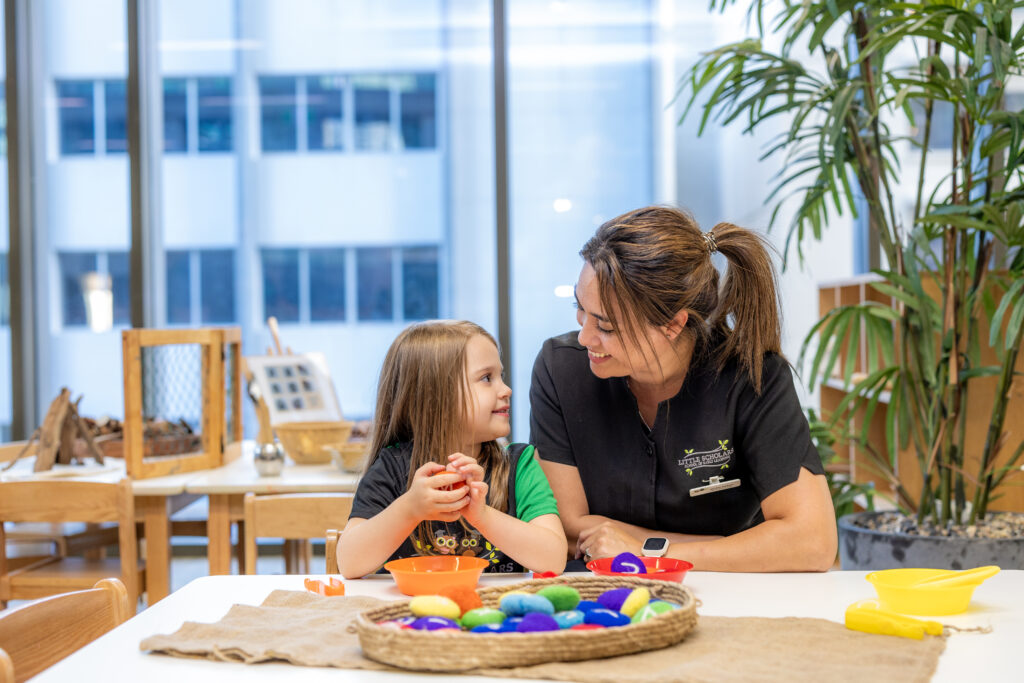
There are several requirements to qualify for the Child Care Subsidy. You may qualify if:
• You or your partner care for the child a minimum of two nights / fortnight
• You or your partner are responsible for childcare fees
• The child meets immunisation requirements
• You use an approved child care service like Little Scholars!
Once you’re ready for your child to go into early learning, you can apply for CCS!
The CCS works on three factors:
• Your total combined family income
• The service type. This can be long day care, or outside-hours care such as vacation care
• How much ‘work-related’ activity you and your partner undertake each fortnight This includes paid work, volunteering, study and other activities as determined by education.gov.au. Job hunting, studying, starting a new business, volunteering and travel time – among others – are all eligible activities that will allow you to claim subsidised hours of care.
Our website has a handy calculator you can use to get an idea of how much CCS you’ll receive.
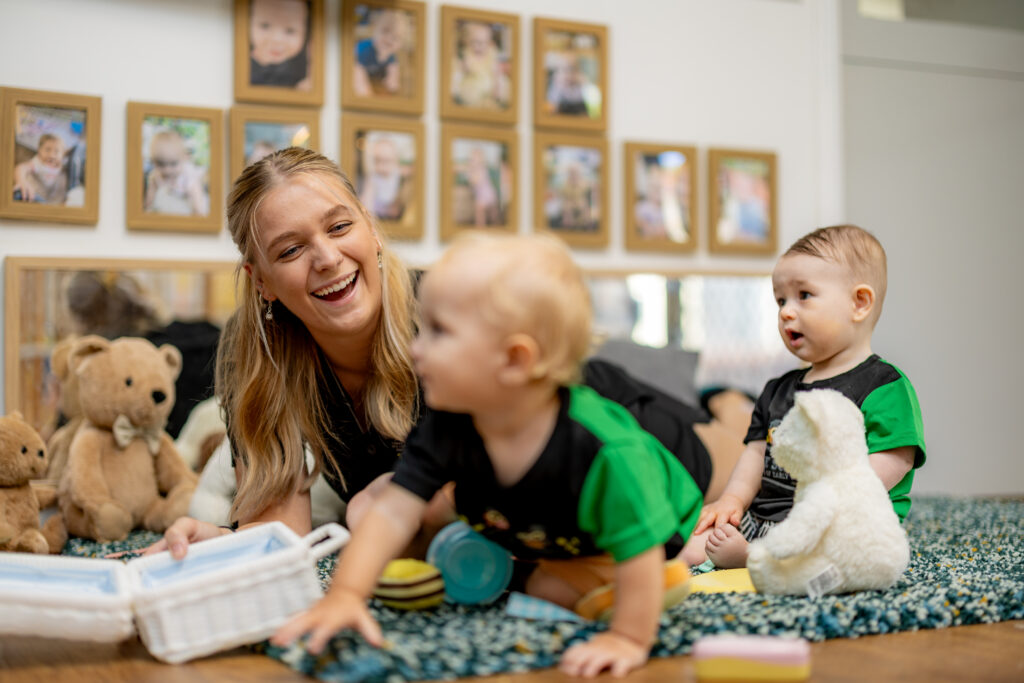
Apply for CCS via your MyGov Account, which is linked to Centrelink.
We recommend you do this as soon as you know when you might be sending your little one into early education and care, so it’s all set up and ready to go for your child’s first day. Don’t necessarily wait until you’ve enrolled with an early learning campus, because the entire process may take between four and six weeks, and if it’s not set up when you begin care, you may be paying full fees until it’s all complete.
Once your spot is booked in, confirm your Complying Written Agreement (CWA). When a CWA enrolment notice is created by the campus manager, there are two steps that need to be completed by the family:
1. You will be notified by email that the CWA is ready for you to agree to. A reminder will be sent via email should you not sign within 48 hours
2. Confirm your child’s government enrolment via MyGov. If you do not agree to the government enrolment, CCS cannot be paid.
During your Child Care Subsidy claim via MyGov, expect Services Australia to request a variety of documents to verify your eligibility. These may include financial details like bank account information, tax file numbers, and insights into your assets. Academic records, work-related documents like tax returns or pay slips, details about your living situation, relationship specifics, any international residence proofs such as visas, documentation regarding your children, and any relevant medical records are also crucial. Now that you know what to expect, we’d suggest these are prepared in advance to streamline your claim process.
Finally, we know change can be scary, overwhelming or confusing, as much for our parents as our little ones. We’re here for you from the day you book your tour to the day your child finishes their last day of kindergarten. We can absolutely help you navigate the CCS and other documents you need to help your child become a little scholars. Reach out to your campus manager, admin or any of the leadership team for guidance or further questions.
We hear a lot about how important the first five years are for children’s brain development, and it’s a time when children’s curiosity is at a lifetime high, so it’s the perfect time to embrace their curious minds by extending these interests and keeping those little minds active and absorbed, and a new study out of Queensland explores this in further detail.
Griffith University researchers recently concluded a three-year study investigating the progression of curiosity into enduring interests and its role in fostering a continuous learning culture. The study involved 57 children aged four to five from south east Queensland, participating in two-week enrichment programs covering 15 diverse topics. This research sheds light on the developmental journey of young children as they cultivate interest in various subjects.
This research looked into how young children start to take an interest in different subjects and how this interest affects their learning. The study aimed to find out the best ways to spark interest in children, how interest fits into their learning, and what effects it has.
To tackle this, the study, led by Ellie Christoffina van Aswegen, introduced special programs filled with topics aimed at getting children excited about learning. These programs included a variety of subjects not typically taught to young children but are essential for a well-rounded education. This approach is based on the idea that children should be exposed to a wide range of knowledge to help them understand new information better and build on what they already know.
The chosen subjects ranged from plants and animals to famous artworks and space exploration, divided into three sets. The first set included topics like reptiles and continents; the second set covered the human body and insects; and the third set introduced children to religions and dinosaurs, among others. These topics were selected to broaden the children’s knowledge and provide a solid foundation for further learning.
The enrichment programs were delivered with a mixed approach of direct instruction, explicit instruction, play-based learning, group reading, and take-home activity booklets.
The underlying principle of the study was that a broad knowledge base is crucial for children’s learning because it helps them connect new information with what they already know, making it easier for them to understand and learn new things.
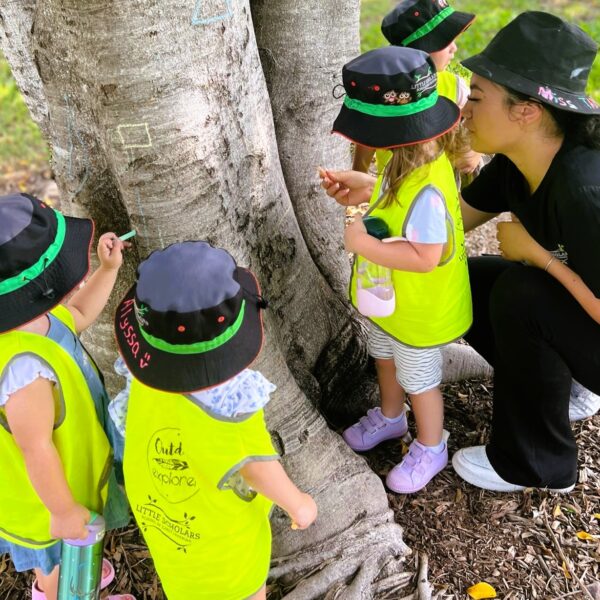
The study reviews the nuanced distinction between curiosity and interest in children, drawing on insights from Renninger and Hidi. It suggests that curiosity is the spark ignited by a specific question, a momentary engagement, as Dewey describes, that captures a child’s attention briefly. In contrast, interest is portrayed as a deeper, more sustained engagement with a subject, driven by a desire to gather extensive information and maintain engagement over time.
The research looks into the dynamics of how curiosity evolves into interest. Initially, a child’s curiosity prompts a flurry of questions about a topic. This questioning phase deepens their interest as they uncover new knowledge, fueling a continuous cycle of inquiry and discovery. Interest is described as encompassing three interconnected facets: actions, thoughts, and emotions. Together, these elements foster a rich learning environment in early childhood, where knowledge acquisition is intertwined with emotional engagement.
Researchers highlight the critical role of emotional connections and perceived competence in sustaining interest. When children develop a strong emotional attachment to a topic, their eagerness to explore and learn intensifies. Similarly, feeling adept in a certain area enhances their interest, propelling them to pursue further learning.
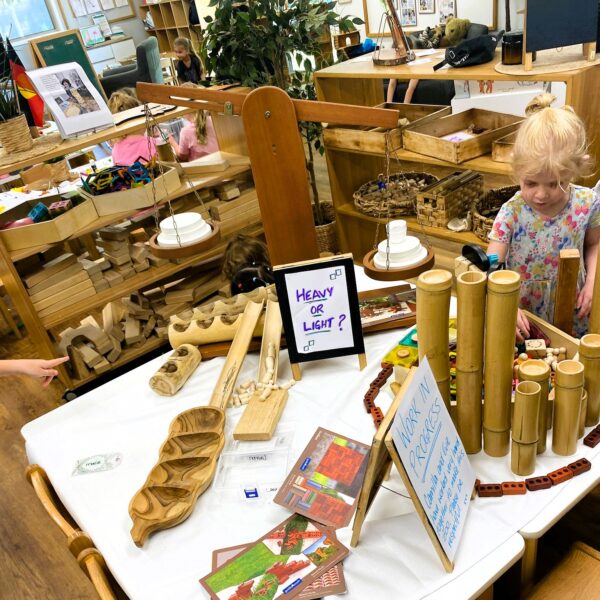
One example mentioned in the study was building on children’s interests of flowers. Educators led a two-minute activity during which the children pretended to be flowers. Two children showed some disengagement towards the end of the activity. Comments made by the researcher and thoughts on possible reasons for disengagement were included in notes. Each component of the session was similarly identified and analysed providing a snapshot of engagement during the session.
Before and after participating in a two-week program focused on flowers, children’s knowledge about flowers and their parts, such as stems, leaves, and roots, was evaluated. Initially, although all children were familiar with the concept of a flower, many lacked knowledge of its basic parts. However, by the end of the program, there was a significant increase in the number of children who could accurately illustrate these parts on a flower diagram. For instance, the ability to draw a stem improved from three to 17 children.
Similarly, the program enhanced children’s recognition of different types of flowers. Prior to the program, only a few children could name any flowers. Following the program, a substantial improvement was noted in their ability to identify common flowers like roses and dandelions. For example, the number of children identifying a rose increased from two to 16.
Observations of the children’s play and interactions during the program indicated a deep engagement with the topic of flowers. Activities ranged from drawing and painting flowers to hands-on exploration and pretend gardening activities. This engagement suggested a high level of cognitive involvement with the flower program.
The researchers observed data on the behavioural and emotive component of interest through video, notes, and feedback provided by both the early childhood teacher and the classroom educators.
Feedback from parents provided through a post-program questionnaire offered additional insights into the children’s growing interest in flowers. Parents reported behaviors indicating an increased awareness and curiosity about flowers in their environment, such as noticing or wanting to pick flowers. This parental feedback supported the observations made during the program, confirming a heightened interest and engagement with the subject of flowers among the children.
The researchers concluded that social interaction was key to developing interest. Social interaction, between teacher and child, their peers and at home, formed the basis of developing interest in the various topics of the enrichment program.
Each component of the program was delivered through images, interesting facts, stories, music, and drama. Researchers found engagement increased as the teacher showed more enthusiasm and modelled curiosity. The study noted that it became clear that the teacher didn’t know all the answers to children’s questions as their interest took them in a variety of directions, and the teacher became a learning partner motivated to research the topic further. The children also motivated each other to learn more, creating art, playing games, bouncing ideas off each other, solving problems and exploring nature together. Familial involvement was identified as another factor impacting curiosity and interest development in a positive way, such as parents working with children to collect or observe flowers or plants in nature to support their learning and working on take-home activity books together. The children brought in their completed take-home activity booklets, to share with the class as well as any ‘treasures’ they had found such as a feather, a flower, a leaf, etc. which stimulated conversation.
The study also examined how children emotionally connected with different subjects, aiming to spark feelings of wonder and awe. This approach occasionally led to feelings of empathy and compassion, or simply brought about joy and delight. Certain subjects allowed children to marvel at the wonders of nature, feel empathy towards animals, or experience the simple pleasure of discovering delightful things.
The study did not shy away from challenging emotions, such as the sadness children felt watching a whale get untangled from fishing nets. Children were provided a supportive environment to discuss their feelings, helping them expand their emotional vocabulary. This is important because understanding different emotions can assist children in managing their feelings better, as they learn various strategies for emotional regulation. Additionally, engaging in music, art, drama (role-play), and free play allowed children to further process their emotions, aiding their emotional growth.
The research also revealed a strong connection between emotional and cognitive engagement. Children became more inquisitive and sought additional information on topics that touched them emotionally.
At Little Scholars, our educational program, The Collective, is based on the premise that children are most successful at learning when curriculum experiences account for children’s interests, strengths, and individual needs. The Collective encompass all aspects of Little Scholars, including a collaborative approach with our children, families, educators, and community.
Our weekly programs, which can be seen in our studios, are responsive to the evolving interests and needs of the children and allow for flexibility and extended periods of play and research to test theories.
Renninger, K.A., & Hidi, S. (2017). The Power of Interest for Motivation and Engagement (1st ed.). Routledge. https://doi.org/10.4324/9781315771045
Harackiewicz, Judith M., Jessi L. Smith, and Stacy J. Priniski. (2016) Interest matters: The importance of promoting interest in education. https://journals.sagepub.com/doi/10.1177/2372732216655542
At Little Scholars, we have four pillars that underpin everything that we do at Little Scholars – for our children, families, educators, and our community.
As part of our annual awards, we have four awards dedicated to those Little Scholars’ values – learn, grow, inspire and contribute. This year, while our award-winning educators certainly personify all four pillars, but with their unique special skills and achievements, we’ve declared one clear winner for each pillar.
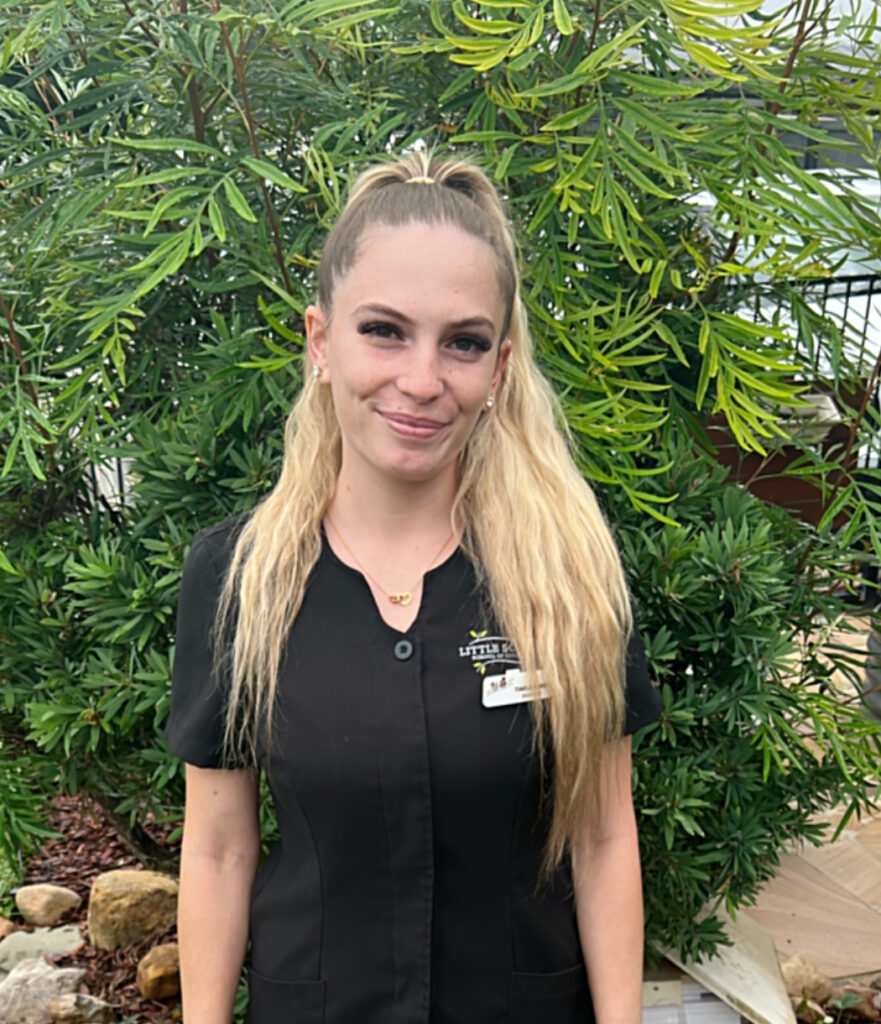
Tiahla at our Ashmore campus was named winner of the Pillar Award in the Learn category because she stepped up to become a lead educator, and she is happy to keep learning from her peers and further her education in the sector.
How long have you been an educator?
Four years
What made you pursue a career in early childhood education?
I feel like it was supposed to be as it all fell into place. I just came out of a casual job seeking for a new career journey and a job at Little Scholars Ashmore popped up. I applied for it and received the role the exact same day.
What’s the most rewarding and most challenging parts of your role? Watching their personalities blossom from a very young age, celebrating their personal developmental milestones with the children and building amazing relationships with families.
The most challenging part would be watching the children you have taught over the years move on to big school. We miss them so much!
What does winning this award mean to you?
Winning my award has meant the world to me, it makes me feel as though my progression and my achievements as an educator are noticed and valued.
Tahlia’s nomination
“Tiahla is always putting her hand up to learn new skills,” says Elise, campus manager for Little Scholars Ashmore.
“She is eager to grow from her peers, and will ask for help and support to build on her knowledge as an educator.”
Tiahla finished her Cert III and was keen to study her Diploma right away, Elise says.
“Tiahla has a bright future as an early childhood educator, as she values the importance of professional and personal growth through learning and collaborative partnerships.”
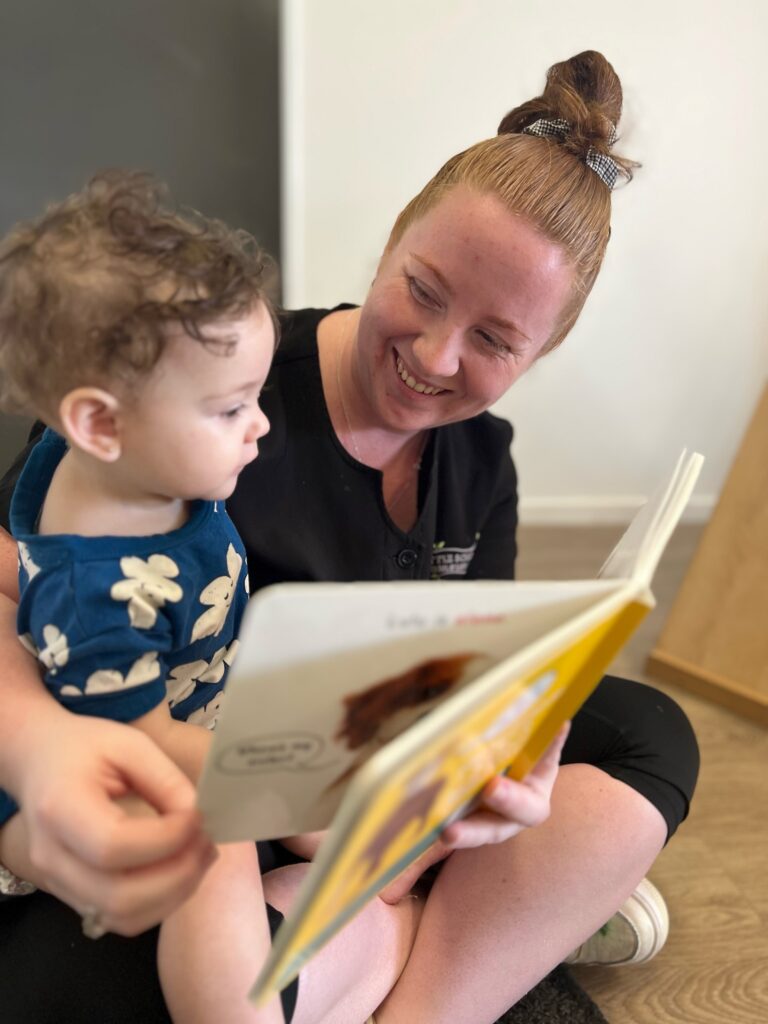
Keeva is an educator at Little Scholars Redland Bay South and is the recipient of an Inspire Little Scholars Pillar Award 2024.
How long have you been an educator, Keeva?
I have been an educator since 2016, so eight years now and have been with Little Scholars Redland Bay South since January 2023.
What made you pursue a career in early childhood education?
When I first started in early childhood education, I was studying an accounting degree, I quickly came to realise that I wanted to focus on my early childhood career. I fell in love with the children, how incredible they are and how much they could teach me. It wasn’t just the children that I fell in love with but also the challenges and limitless knowledge I could acquire and learn from to be the best educator possible.
What’s the most rewarding and most challenging parts of your role?
The most challenging part of my role is that I want to spend as much time as possible with each individual child everyday teaching them and learning from them but there is not always enough time. The most rewarding part of my job is watching the children hit all their goals and the excitement they display when they see us or accomplish goal. Mentoring and supporting other educators and seeing how far they have come in their journey is another rewarding aspect always leaving me feeling proud of their accomplishments.
What does winning this award mean to you? I was so shocked to receive this award, as I just turn up to work each day to do my best to support and guide both the children and educators. It felt so good to know that what I do each day is being noticed. It definitely makes you feel like you are doing a great job. To be recognised for the support and guidance I provide was so special and my heart felt full of love for my team. To me it cemented the fact that I am becoming the educator I always wanted to be
Keeva’s nomination
In Keeva’s nomination from Redland Bay South campus, it said, “Keeva is an educator who truly embodies each of the little scholars core pillars.
However, it is Keeva’s ability to inspire those around her, that is one of the most outstanding qualities. Keeva invests in mentoring those around her, inspiring their abilities to grow as educators utilising her existing knowledge and ability to learn more through professional development, to inspire each person to grow to full potential.”
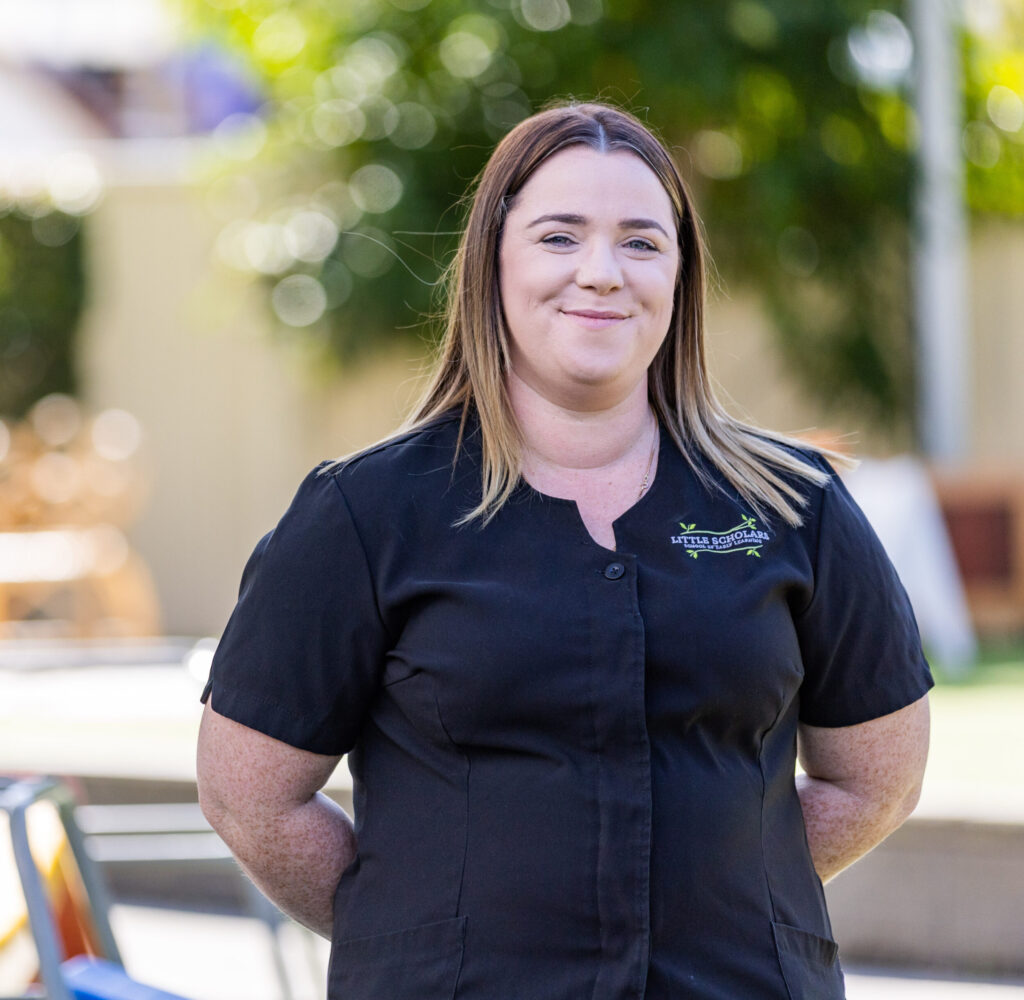
Claire is the educational leader at Little Scholars Nerang campus and has been awarded the 2024 Contribute pillar award.
How long have you been an educator and how long with Little Scholars?
I have been an early childhood educator for 18 years and with Little Scholars for nearly six years.
What made you pursue a career in early childhood education?
I’m not quite sure when I decided this was the path I wanted to take as I feel like it’s been my career goal since I was little. I still remember the way one of my kindergarten teachers, Miss Anderson, made me feel. She was fun, caring, and knowledgeable. I wanted to be that for someone and help children to learn in their own time and style. I liked the idea of being able to help shape the minds of little ones and set them up to be kind, respectful humans.
What are the most rewarding and most challenging parts of your role?
As educational leader within my campus, the most rewarding part of my role is watching both the children and educators flourish and grow as humans. It fills me with so much pride to watch the children reach their milestones and celebrate their successes with them as much as it does when educators gain new skills that help them in their professional career.
My biggest challenge is saying goodbye to the children as they venture off on their next journey into formal schooling. It happens each year but never gets easier to see them go after watching them grow and develop over the years.
What does winning this award mean to you?
Winning this award makes me feel like I am on the right path to creating what I hoped to. It reinforced the fact that I am in the right career and doing the right things to help create a better future and bring our campus closer to our local communities. I feel so proud to be recognised as the 2024 contribute pillar winner.
Claire’s nomination
Renee, campus manager, said, “Claire has remarkable attributes and will contribute to anything and everything you can throw at her.
She is passionate about supporting others and always willing to participate in any type of event, including her own professional growth.
Claire is dedicated within our Little Scholars family and her years with us is another wonderful example of her contribution to our sector.”
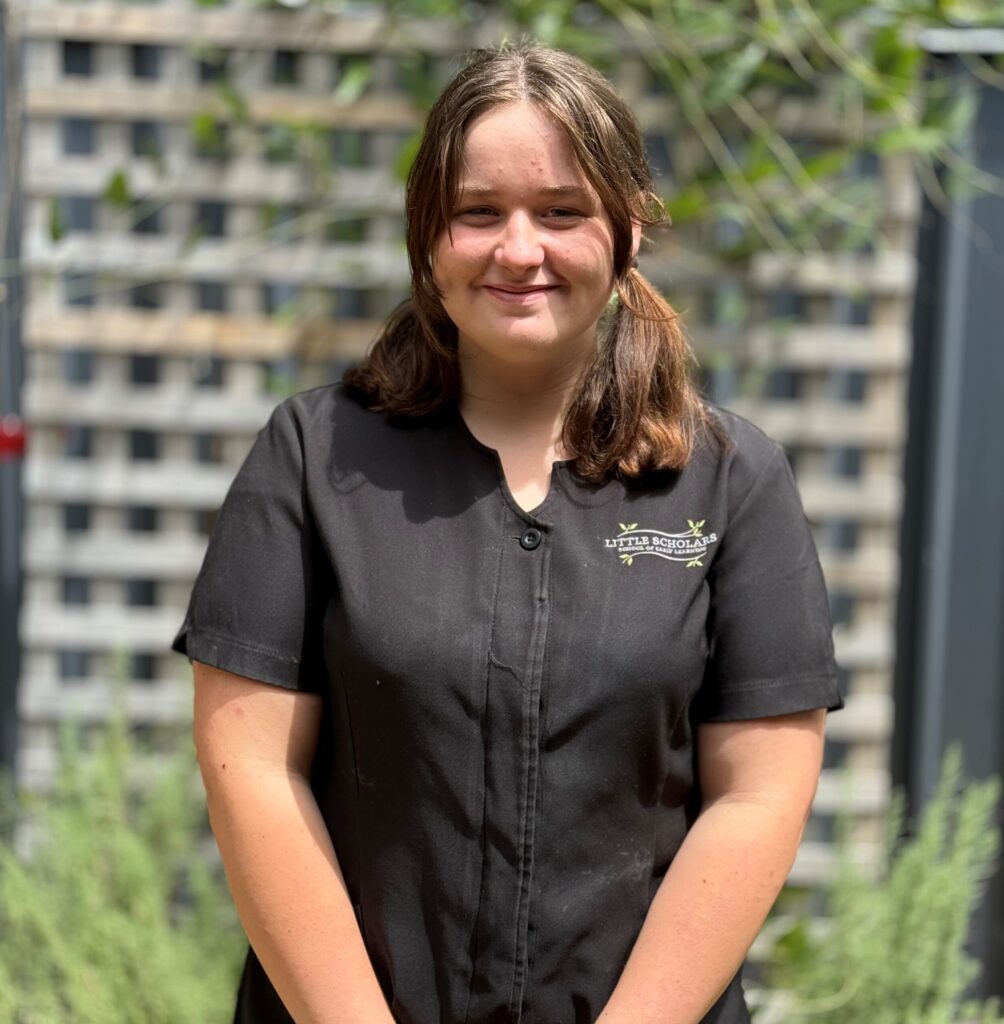
Stefenie, an educator at our Yatala campus, has remarkable attributes and we’re told her growth as an educator has been propelled by her enthusiasm to contribute, learn and inspire her team and go above and beyond not only for children, but families as well.
How long have you been an educator and with Little Scholars?
I have been an educator with Little Scholars for three years.
When you started, what was it about the role that made you want to stay in the sector?
When I was completing my work experience at the Yatala campus, I loved the relationships I was building with the children and I could see the impact educators had on the children.
What’s the most rewarding and most challenging parts of your role? The most rewarding part of my role is building such strong relationships with the children. The most challenging part is because I am so use to the younger age group, when I’m with the older children, I have to adjust my teaching style and interactions to their age groups.
What did being recognised for the Grow award mean to you?
It was really special because it really made me see how far I’ve come since being a 16 year old school based trainee. My confidence with the children and families, as well as my knowledge on child development has strengthened so much. I am a completely different educator and the fact that my leadership team can see and recognise it, it is a very special feeling.
Stef’s nomination
Stef at our Yatala campus was named winner of the Pillar Award in the Grow category because she’s grown from a trainee at the campus just a few years ago to now full time educator.
Sasha, campus manager at Little Scholars Yatala had this to say:
“Stef! What a superstar you are, and what a year you have had! From completing your Cert III as a school based trainee to jumping straight into full time work with us and then to go straight to studying your Diploma, nothing can stop you from achieving your goals, and we are so proud of how far you have come and the growth that you have achieved.”
Babies are not born knowing how to control their emotions, nor are adults necessarily well-versed in how to regulate their emotions, even after decades experiencing them. While modern society is making way and space for people to feel and name emotions such as sadness, anxiety, anger, embarrassment, stress and more, some of us hadn’t learned how to allow ourselves to be vulnerable and express these emotions in a healthy way.
At Little Scholars, emotional regulation skills are as important as every other lesson children learn during their time with us. We’re hoping to break generations of cycles of mental health stigmas by teaching children to name and work through their emotions, but we also recognise this must happen at home, on the sports field, and anywhere else they may need to have access to a range of tools to cope and work through tough situations and feelings.
As parents and caregivers, we understand that not all of us were raised with the emotional intelligence to guide a young person in developing theirs. There’s also the possibility that children in our care have experienced more traumatic or negative experiences than we’ve had to deal with, so it might be something we don’t know yet how to navigate. More on that later.
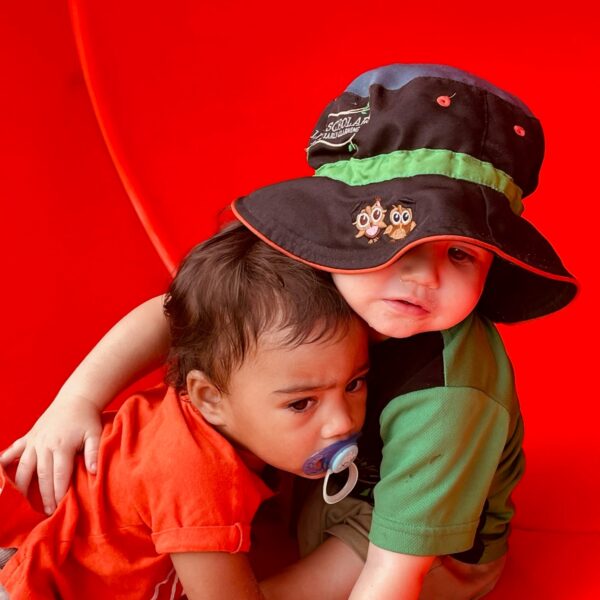
When emotional states are high, it’s helpful to recognise the behaviours we see, and the emotional states we may not see.
The behaviours can be aggression, screaming, crying, avoidance, refusal, hiding, running, threatening and loss of self-control, for example.
What we may not be seeing in our children are feelings of: nervousness, exhaustion, guilt, fear, disappointment, overwhelmed, anger, rejected, embarrassed, judged, unloved, depressed, anxious, worried, shame, disrespected, helplessness, offended, sad, and attacked, amongst other feelings.
When a child is displaying any of the above behaviours, what do you think the feeling behind it could be?
1. Stay tuned and recognise signs – Keep a close eye on behavioural cues that indicate your child is experiencing strong or challenging emotions. Be aware of these signals when they arise. Of course, the strength of the emotion is normal, it’s how they deal with it that’s important. This is a step in which you’re helping to create a safe haven for the child, one of trust and acceptance. For the adult, this is recognising and understanding that all emotions are natural and normal.
2. Turn challenges into teaching moments – See difficult situations as opportunities to connect with your child and help them learn valuable emotional regulation skills. Helping children to label their emotion encourages the regulatory process to engage and reconnect the thinking brain with their limbic system. In other words, name it to tame it!
3. Listen with empathy and validate their feelings – Before reacting with discipline, keep in mind the phrases ‘Connect before you correct‘ and ‘Stay calm and curious, not quick to anger.’ Ask open-ended questions to help your child identify and express their emotions, like “I noticed you seem to be feeling ___. Could it be that you’re feeling ___?’ or ‘I’m sorry that happened to you, you must be feeling very ___’
4. Establish boundaries – Clearly communicate expectations for behaviour, reinforcing positive actions such as using kind words and explaining consequences for inappropriate behaviour like hitting. Setting these boundaries helps maintain safety of the child and those around her/him. It’s important not to make the child feel shame, and ensure the child maintains self-dignity. ‘It’s ok to feel like that, but it’s not ok to behave like that’ or ‘we don’t deal with our emotions by ___’
5. Problem-solve together – Encourage your child to brainstorm possible solutions or strategies to improve future outcomes. Provide support tailored to their age and comprehension level, using visual aids or suggesting choices when helpful. So to restore and repair, you might explore the situation first: ‘how were you feeling when that happened?’ and ‘have you felt that way before?’ then show your child you’re in this together brainstorming ‘let’s think of what you could have done instead’ or ‘can you think of two more ways you can deal with your feelings?’ the work together to come up with solutions ‘let’s decide what you will do next time you feel like this’ or ‘do you think that ____ would be more helpful next time?’
How trauma
can influence behaviour in children
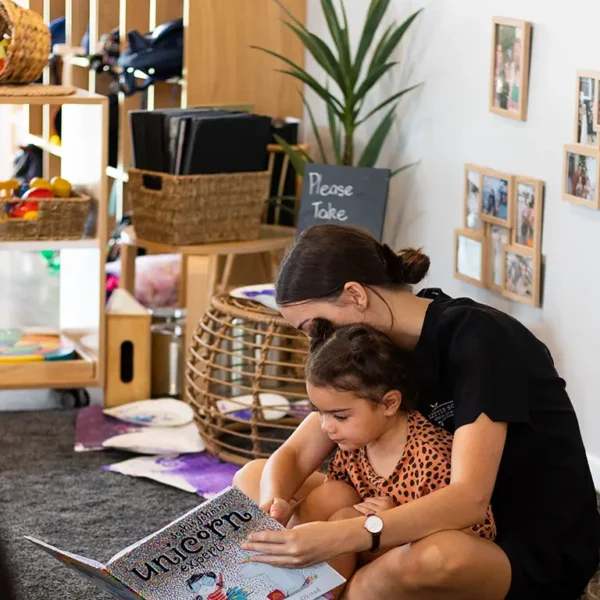
Zoe Lowe is a teacher and mentor who guides educators and parents through early education, behavioural support and trauma-informed practices. She recently spoke to Little Scholars educators at our annual Learning & Development Day.
Her talk helped our educators understand trauma-informed practice, how to recognise the different types of trauma people can experience, and how to work with children who might have experiences of trauma. In Australia, upwards of 5 million adults are affected by childhood trauma.
The types of trauma include:
· Simple trauma, which stems from often a single incident that was life threatening or have the potential to cause serious injury.
· Complex trauma involves interpersonal threat, violence and violation, in contrast to simple trauma, complex trauma involves multiple incidents and is therefore longer in duration.
· Developmental trauma is used to describe the impact of early, repeated trauma and loss which happens within a child’s important relationships, generally early in life.
Children who have experienced any of these traumas can be affected in many ways in their development, she says, because their mental capacity to learn may be eclipsed by having to cope with these negative circumstances.
“This is correlated with developmental trauma,” Zoe says. “Surviving the situation. So [a child’s] survival system becomes overdeveloped. Everything else is underdeveloped.”
“What also happens with trauma, the hippocampus, the part of the brain that’s responsible for your memory [learning and emotion] and the ability to differentiate between the past and the present. So, with persistent exposure to trauma, it can shrink in size, so it won’t pull on what it can to differentiate between the past and present, which is why our past experiences can have such a profound impact on us, even if we’re no longer in danger,” Zoe continues.
So why does this matter?
Because trauma can present itself in many ways in children. Perhaps they’re tired all the time, they startle easily, children who perceive educators or other trusted adults as angry and perceiving them as authoritarians with whom they can’t connect or feel safe, struggling to understand concepts easily, not coping well with transitions, friendship issues, over or under-eating, and, aggression.
However, she says, trauma can explain the behaviour, but it does not excuse the behaviour.
And these symptoms that can present in children may not necessarily be trauma, so Zoe warns not to be quick to diagnose children.
Whether the child has experienced an adverse life event or not, if there’s a behaviour exhibited that we don’t want to see, Zoe says this is where we question what’s behind the behaviour, and find out what a child might need to cease the behaviour.
“As educators, we are going to make a paradigm shift. We’re moving away from ‘what is wrong with you?’ to ‘what happened to you? What is this behaviour that I am seeing right now communicating to me? What need is needing to be met by me?’ says Zoe.
This shift also helps adults calm down and regulate their own reactions to the behaviour in question.
“We expect children to self-regulate, they can’t. They need co-regulation, we need to be with them, supporting them, holding space for them, and teaching them how to regulate.”
While children may not be born knowing how to regulate their emotions, at Little Scholars, we believe they deserve a safe space to learn and grow. We understand that emotional regulation skills are crucial for all aspects of life, and we’re committed to working alongside parents and caregivers to build a supportive community where every child feels empowered to express themselves healthily.
Our educators are extensively trained in recognising emotional cues and guiding children through challenging situations. We encourage you to stay tuned for further resources, and remember, you’re not alone, we’re here to support your child, your family and our greater community in creating a generation equipped with the emotional intelligence to navigate life’s ups and downs with confidence and compassion.
Elizabeth Stone, an award-winning essayist and journalist, once captured the essence of parenthood with a poignant quote, ‘Making the decision to have a child – it is momentous. It is to decide forever to have your heart go walking around outside your body.’ This statement resonates deeply with many parents, astutely capturing the feelings of boundless love and the inevitable vulnerability that comes with bringing a child into the world.
This overwhelming surge of emotion is particularly intense during those initial moments and first days of separation from your child, often experienced when that child is entrusted to the care of someone else for the first time. It’s a milestone filled with mixed emotions for parents – pride in their growing independence, yet a deep longing to keep them close forever.
While the focus in the first few weeks at early learning facilities is generally on the children and how they’re settling in, an often-forgotten topic is the separation anxiety parents also can feel when they drop their little ones in care for the first time.
In childcare, we offer families tips on how to help children settle in, from suggestions such as: ‘don’t sneak away’, ‘keep goodbyes short’, and ‘maintain calm and confidence’, but what if the child is just fine, but the parents are struggling from the separation?
It’s understandable. If you’re coming off maternity or paternity leave, or perhaps you’ve been the primary parent at home for the last few years, change can be profoundly hard.
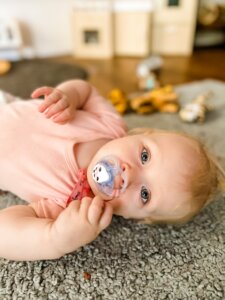
What we’re talking about is parental separation anxiety, and it’s more common than you think.
“I experienced separation anxiety with both my children when I dropped them into care for the first time, but I was much more surprised with my feelings the second time around,” says Christina, a communications professional who has two children. “I had to go back to work much earlier the second time around, and I felt a lot of grief for not getting to continue to bond with my son the way I had been, knowing he was my last baby. I also experienced some fears around him attaching to his educators more than me.”
A 2016 study by Pacey UK (the professional association for childcare and early years) reported that out of 1,000 mothers, 70% of mums said they worried about the extent they would miss their children, 90% reported feeling anxious about returning to work after having a child, while nearly half of mums admitted being very anxious.
How can parental separation anxiety manifest itself? Some of the more obvious signs are tears. Anxious feelings. Moodiness. While others you may not notice until they start affecting your life and mental health.
Here are some common indicators of more serious separation anxiety to be aware of:
Ask yourself, what is your biggest fear or worry in separating from your child? The initial step in overcoming these feelings is to acknowledge and understand them. If you’re experiencing heightened anxiety about being apart from your child, it’s important to explore the origins of these feelings. Perhaps they stem from experiences in your life in childhood, or birth trauma, the loss of pregnancy or another child, perinatal or postnatal anxiety/depression and existing anxiety issues, or it may simply be triggered by the act of becoming a parent.
“How does a parent reconcile these feelings of separating from their child? I think what’s important about that one is that often it’s around guilt,” says Sarah Bergman, a clinical psychotherapist at Counselling on the Coast who has more than three decades of experience in emotionally-focused therapy.
“Guilt is really an emotion that comes up when we have like an idealised sense of a situation or who we are. So we feel guilty when we don’t feel we’ve reached what we want to be reaching or we haven’t done what we want to do. I would say to explore those feelings of guilt, what they are, what you feel like you’re not doing for your child or getting right for your child.”
Sarah says those guilty feelings in parents often link back to situations in their own childhood where they felt like their own parents let them down. But the concern is also passing down those guilty or anxious feelings to your child.
“Their own wounds start to muddy the waters of the child’s experience. So the child’s just going to school, but then they feel their parents anxiety and then they also think that something’s wrong then too, which can make them anxious. So if the parents have a good look at themselves around, ‘what was it that my parents got wrong for me? or what was it that wounded me? and how does that now play across on my child?’ So the parents will often work hard to do the things that they don’t want that their children to experience themselves.”
While Sarah says often the guilty feelings stem from what they missed in their own childhood, the opposite could be true.
“Maybe [parents feel they’re] not meeting the ideals of what your parent did for you or what things that you really loved about your parent and now you feel like you’re not getting that right.”
Wherever the feelings stem from, Sarah says, parents may be trying to heal themselves through their relationship with their child. But, she says, a child doesn’t have those wounds. They don’t experience their parents in that same way that perhaps you did. So she surmises parents could be overcompensating for their own childhood pain.
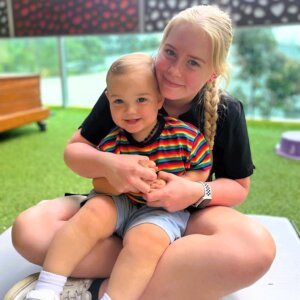
“Those kind of parents are very anxious at feeling like they have to attend to everything with their children because they don’t ever want their children to feel the way that they did,” Sarah summarises.
Consider jotting down your feelings or discussing them with a sympathetic friend or even a colleague who could relate with what you’re currently experiencing. Regardless of how trivial or illogical they might seem, allowing yourself to express and discuss these fears can aid in releasing them.
Making the decision to have a child – it is momentous. It is to decide forever to have your heart go walking around outside your body.
Elizabeth Stone
Sarah also suggests parents educate themselves on secure attachment, a theory first proposed by the British psychologist, psychiatrist, and psychoanalyst John Bowlby. For children, secure attachment to someone like a mum or dad allows them the secure base necessary to explore, learn and relate, and the well-being, motivation, and opportunity to do so. It’s important for safety, stress regulation, adaptability, and resilience and ultimately can help produce a happy, healthy well-adjusted child.
“If you are securely attached, you will feel less anxious because you will feel comfortable that you can trust, you have a positive view of other people and a positive view of self,” Sarah says. “So you think to yourself, ‘it’s okay. My child is in safe hands. They will let me know. I trust the daycare centre. And I trust myself that I’m doing the right thing by my child and it’s going to be okay and I need to go to work and this is just the way it is.’ Whereas someone who is more anxiously attached sometimes have a bit of a negative view of themself and possibly a bit of negative view of others so they don’t totally trust others, so it’s about trying to move into being more securely attached.”
She also says to have an honest conversation with educators or your campus manager.
“You know, that is actually good secure relating as well, that a parent can actually say, ‘I’m feeling a bit nervous’, or ‘I’m a bit worried about that,’ because they’re asking then, they’re not coping alone.”
Sarah recommends in that conversation, have a chat with educators or your campus manager about what might help to alleviate those anxious feelings, whether it’s a phone call or a text, a few extra pictures – whatever it is, having clear communication can help everyone.
“What helped me was an honest discussion with my son’s lead educator during a playdate. She asked me thoughtful questions about why I was having a hard time, asked how she could help alleviate those feelings for me, and was very mindful to update with lots of pictures, and even checked in on me at pick-up over the next few weeks. It was really helpful, and gave me feelings of trust in leaving my baby with her and her team,” Christina adds.
Those secure attachments we want children to have means we also want them to have bonds with others, such as loving educators.
A child who has had a secure attachment with her parent or another safe adult is more likely to be able to develop lasting successful relationships as an adult. In fact, a New York University study recently found positive, warm relationships between caregivers and children were associated with higher odds of attaining ideal heart health at multiple points across a 20-year span of adulthood, so developing these bonds is good for their health!
Part of early childhood training for educators is understand various child development theories such as attachment theory, so trust that your educators understand what secure attachments – both to parents and others children can trust – mean for children’s development and they work hard to ensure these bonds with your child.
Research has found our adult relationships are shaped by our early patterns of attachment and the ways we learn to deal with closeness and separation.
“Children are very attached to their parents and they love their parents very much. And that is who they want to be with. And if they create an attachment with someone else, that’s lovely. However, ultimately it’s important to keep in mind they will want to be with their parents,” Sarah says.
Sarah also says some of these feelings may be pressure we put on ourselves as parents.
“We don’t actually have to be perfect parents and I think a lot of people are really trying to be perfect parents and wrapping their children in bubble wrap. You just have to be good enough. I think from memory it’s only like around 60 or 70 per cent strike rate of meeting the child’s needs.”
Sarah is referring to the Winnicott theory.
“The good-enough mother is one who makes active adaptation to the infant’s needs, an active adaptation that gradually lessens, according to the infant’s growing ability to account for failure of adaptation and to tolerate the results of frustration.” – D. W. Winnicott, paediatrician and parent-infant therapist.
“We all have to learn that sometimes our needs aren’t going to be met. And that’s actually where we build resilience and we build understanding around that other people have things they need to do as well,” Sarah says. “You don’t have to drop everything to be there for your kids. It’s okay to have ruptures with your children. It’s actually okay because that is a realistic expectation on relationships. We all have ruptures and then we get to learn how to repair those ruptures. But of course, if the child’s fallen over or they’ve hurt themselves or they’re scared at night, you want your strike rate on those things needs to be closer to 100 per cent.
“But otherwise, we don’t have to be so hard on ourselves, we can get it wrong sometimes. We just go back and say, ‘Hey, I’m sorry I got that wrong.’ And then the child also learns that they’re going to get things wrong sometimes, too. They can come to their parent and say, ‘Hey, Mum, sorry about that.’”
If we can offer some advice, it’s what we also suggest to parents when children are having a hard time with separating. Find an activity you can do together outside of care hours that you can look forward to, so you can cherish your time together. Maybe after pick-up, you take your child for a walk or to the park, maybe it’s grabbing a sneaky ice cream after dinner, maybe it’s a game night or story time when you get home. Find ways to really connect with your child in the time you’re together may make the time you’re apart easier to deal with.
Sarah says mindful activities can help in easing anxious feelings. But, she says, if these feelings are taking over, it might be worth talking to a professional as soon as possible. You can talk to your GP about a referral to see a psychologist, or you can book in to a specialist practice such as Sarah’s Counselling on the Coast to have a chat with a psychotherapist.
Please remember, if Little Scholars can help in any way, we will, from offering a listening ear, to phone calls to whatever would help your family, we will. We’re not just here for children, we’re here for the whole family.
At Little Scholars School of Early Learning, we’re dedicated to shaping bright futures and instilling a lifelong passion for learning. With our strategically located childcare centres in Brisbane and the Gold Coast, we provide tailored educational experiences designed to foster your child’s holistic development.
Let us hold your hand and help looking for a child care centre. Leave your details with us and we’ll be in contact to arrange a time for a ‘Campus Tour’ and we will answer any questions you might have!
"*" indicates required fields